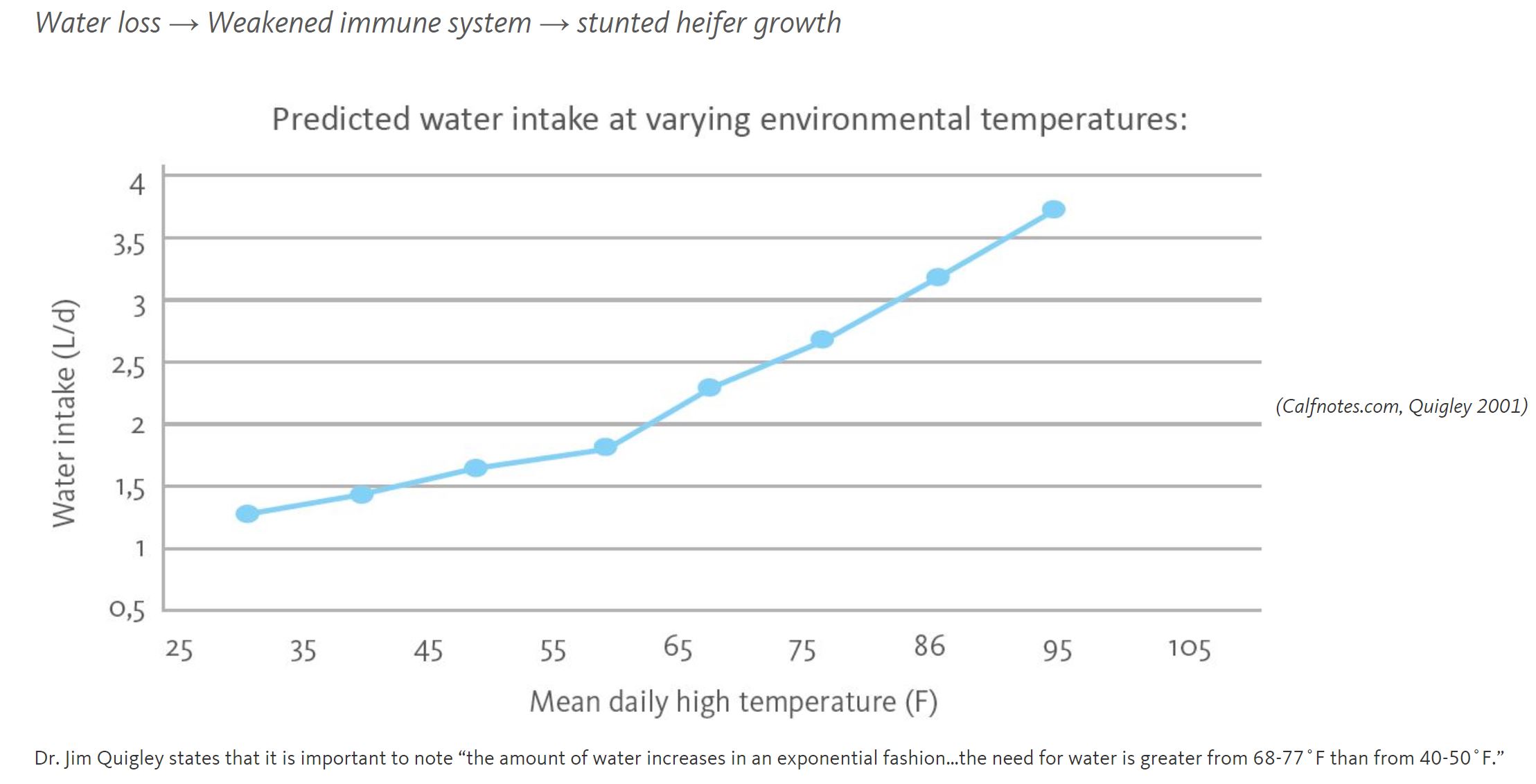



Why should we avoid heat stress in calves
During the hot summer days, calves can suffer from heat stress. This can present long-term challenges through all growth stages of life, starting from birth, writes the team from Denkavit.Pre-Partum
Maximizing the genetic potential of your future herd begins before birth. Research has shown that heat stress decelerates the rapid weight gain of the fetus during the dry period and can result in a lower birth weight (Laporta, J., et al. 2020). Lighter calves also often have lower vitality.
Post-Partum
The first 24 hours of life are vital to the health and development of the calf. Heat stress during the first few days of life can affect future heifer growth due to a lower efficiency of nutrient absorption. For example, calves that are heat stressed will not absorb all the immunoglobulins from colostrum to their fullest potential. As a result, these calves are presented with challenges from day one that they cannot recover from.
Future Heifer Growth
Heifers under heat stress will consume less feed while their energy requirements are increasing by 20 to 30 percent. This 20-30% increase is accounting for additional energy required to cool the body down, similar to additional energy requirements in the winter to keep the calf warm. Without sufficient feed intake to provide the heifer with adequate calories to meet her energetic demands, growth of the heifer is stunted. The energy that is consumed through the feed is utilized for maintenance first, any additional calories will be utilized towards growth.
Water absorption
Calves under heat stress pant and sweat more. To compensate for this loss of moisture and prevent dehydration, fresh, cool water should always be available. To maintain hydration, healthy calves under heat stress should aim to drink between 1-4 gallons of water per day in addition to their milk feedings. Sick calves with diarrhea should drink up to 5 gallons of water for optimal body hydration. A fluid imbalance can suppress the calf’s immune system.
10 Tips to prevent heat stress
- Fresh and clean drinking water available at all times
- Clean drinking bowl/bucket with effective cleaners that remove biofilm
- Routinely offer Denkacare Vitalfort once a day (in addition to water and milk feedings)
- Adjust the concentration of milk (increasing energy requirement and decreasing feed intake at the same time)
- Adjust milk feeding routines (cooler in early morning/late evening)
- Additional ventilation/shading
- Prop hutches up on a block to provide additional ventilation at the calf level
- Reduce stocking density in group housing
- Fly control – Utilize effective methods of fly control
- De-horn and vaccinate during cooler parts of the day
TheCattleSite News Desk




